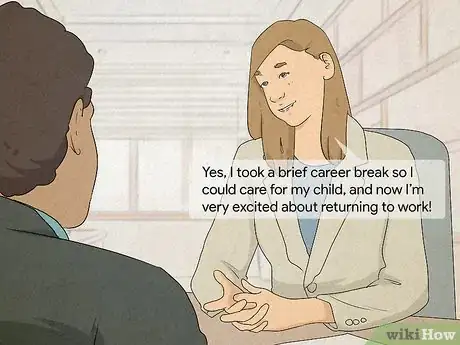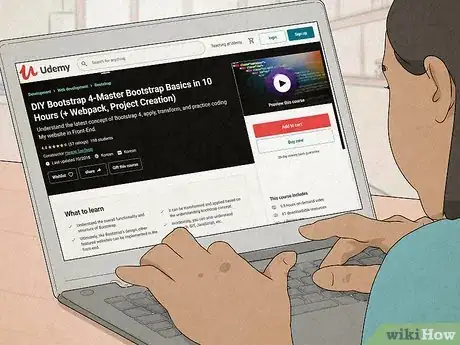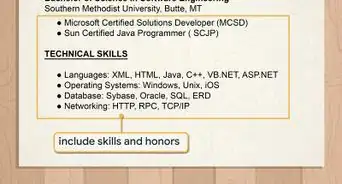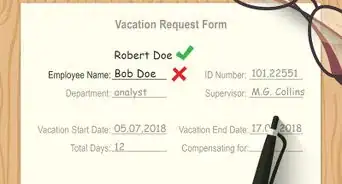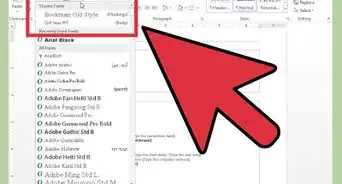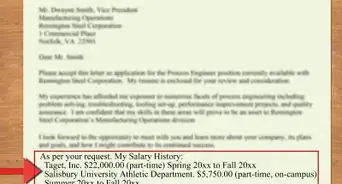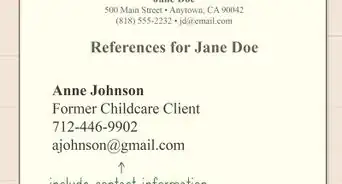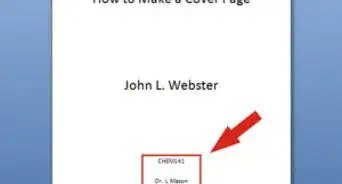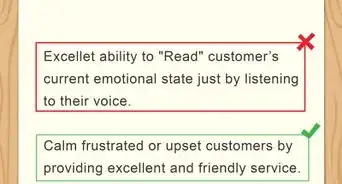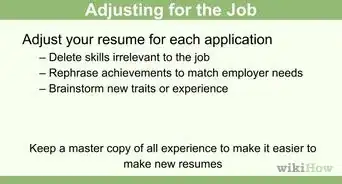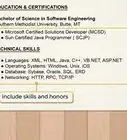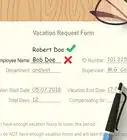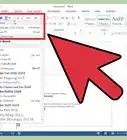This article was co-authored by Katrina Georgiou and by wikiHow staff writer, Megaera Lorenz, PhD. Katrina Georgiou is a career coach and the founder of Katrina Georgiou Coaching based in Silicon Valley. Katrina helps individuals find new careers as well as career advancement, including resume writing, interview preparation, salary negotiation, and performance reviews. Trained in the co-active method from the Coaches Training Institute (CTI), Katrina uses personalized communication and leadership strategies to support her clients in building successful and fulfilling careers.
This article has been viewed 25,606 times.
Having an employment gap on your resume can make it harder to get a job. If you’ve had to take time off from the workforce to care for a child, you may be worried about how to explain it to potential employers. Make sure your future employer understands the reason for the gap on your resume by being upfront in your cover letter, and be prepared to clarify during an interview. Give yourself an edge by networking and keeping your skills and industry knowledge sharp during your hiatus from work.
Steps
Explaining the Gap in Your Cover Letter
-
1
-
2Keep it brief. There’s no need for anything elaborate. Put one or two sentences into your cover letter, clearly explaining the reason for your work hiatus.[3]
- Try highlight what you were doing during your gap, including any new skills you learned.[4]
- For example, you might say something like, “I took three years off to care for my child, and now I am eager to return to work.”
Advertisement -
3Focus on what you have to offer. Once you have stated the reasons for your employment gap, move on to what you have to offer your potential place of employment. Focus on your skills, experience, and enthusiasm for the work.[5]
- If you gained any work-related experience during your hiatus (e.g., volunteer work, freelance work, or certification courses), mentioning this could give you an edge.
- Don't worry about including a list of references. Instead, use your resume to highlight your skills and experiences.[6]
Talking About Your Employment Gap in an Interview
-
1Make it clear that you have a plan. Potential employers want to know that even if you had to take time off in the past for family-related reasons, you have a good support system in place going forward. Assure your interviewer that you will be able to commit fully to the work.[7]
-
2Move on quickly. Don’t linger on the topic of your work gap, or apologize for it. If your interviewer asks about your employment gap, simply address it in a brief, matter-of-fact way, and steer the conversation toward what you hope to bring to the job.[8]
- For example, you might say, “Yes, I took a brief career break so I could care for my child, and now I’m very excited about returning to work!”
-
3Emphasize why you are great for the job. Keep the focus on what you can bring to the table. Talk about your expertise and past experiences, including any relevant accomplishments, skills, or experience you may have gained during your employment gap. Make it clear that you are prepared, excited, and enthusiastic about returning to your career.[9]
- When talking about experience gained during your work gap, don’t emphasize your parenting or home management skills. Focus on things like volunteer work, freelance work, consulting, or any courses you might have taken.
Preparing to Reenter the Job Market
-
1Get caught up on your industry. If you’ve been out of the loop for a while, you can make yourself more marketable (and better prepared) by doing some research and keeping your skills sharp during your career break. Read books, journal articles, and news reports to keep up with the latest developments in your industry.[10]
- If you’ve taken the time and effort to stay on top of the state of your industry during your employment gap, make sure to mention this in your interviews. It will positively impress potential employers.[11]
-
2Consider taking online classes or certification programs. A great way to brush up your skills and knowledge, and to beef up your resume, is to take courses and get certifications related to your field. Explore sites like Coursera.org or Udemy.com for free or low-cost courses that can help prepare you for your to return to the job market.[12]
-
3Keep networking. During your work hiatus, keep in touch with contacts in your field. Let them know you are interested in returning to work soon, and ask them to let you know if they hear of any openings. Explore other possible connections in places you might not immediately think of, like fellow parents or staff at your child’s school.[13]
References
- ↑ https://www.nytimes.com/2016/05/20/business/economy/a-child-care-gap-in-the-resume-whether-to-explain-or-not.html?_r=0
- ↑ Katrina Georgiou. Career Coach. Expert Interview. 25 June 2020.
- ↑ http://money.cnn.com/2014/12/02/pf/resume-gaps/index.html
- ↑ Katrina Georgiou. Career Coach. Expert Interview. 25 June 2020.
- ↑ http://money.cnn.com/2014/12/02/pf/resume-gaps/index.html
- ↑ Katrina Georgiou. Career Coach. Expert Interview. 25 June 2020.
- ↑ http://money.cnn.com/2014/12/02/pf/resume-gaps/index.html
- ↑ https://www.nytimes.com/2016/05/20/business/economy/a-child-care-gap-in-the-resume-whether-to-explain-or-not.html?_r=0
- ↑ https://www.nytimes.com/2016/05/20/business/economy/a-child-care-gap-in-the-resume-whether-to-explain-or-not.html?_r=0





